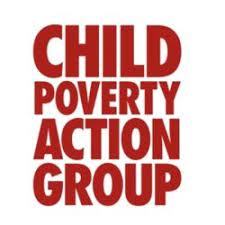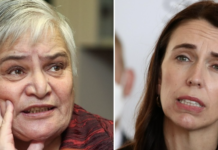A group of anti-poverty campaigners has called on the Government to implement its Budget benefit plans on 1 July, rather than staggering increases across 1 July 2021 and 1 April 2022, as announced last week.
The Government announced, as part of Budget 2021, that core benefit levels would increase by $20 per week on 1 July, with additional increases to bring it up to $55 in total on 1 April 2022.
But the Government has given no reason why these increases have been staggered.
“People are suffering unnecessarily. We are just one of many groups who have been calling for significant and urgent increases to benefit levels for years now,” said Caitlin Neuwelt-Kearns, Researcher at the Child Poverty Action Group (CPAG).
CPAG is part of the Fairer Future collaboration of groups, which is calling for liveable incomes for all. Seventy-five organisations signed an open letter to the Prime Minister last year calling for benefits to be lifted urgently before Christmas.
Andrew Hubbard, acting CEO of the Citizens Advice Bureau says the situation is urgent for many of the people they work with.
“In this last year over 5700 people – that’s 110 people each week, and 22 people every day of the working week – came to us needing emergency access to food,” said Hubbard.
“The delays in introducing the full increase until next year will mean people across the country will continue to face impossible choices, like choosing between heating their homes or buying food this winter,” continued Hubbard.
Writer Joe Boon, who receives the Supported Living Payment said “Why if the Government understands the pressure and severity of the situation so many of us are in, are they delaying bringing the full increase in until April next year? Nine months is too long to wait.”
“By introducing the full increases on 1 July the Government could demonstrate it understands the scale and severity of the poverty whānau are experiencing,” said Neuwelt-Kearns.
The Appropriation (2021/22 Estimates) Bill passed its first reading last Thursday 20 May, but has not yet been read a second time, meaning it could still be amended to enable benefit increases to be implemented in full on 1 July.






Paying the second instalment from 1 April, means that it is inclusive of the 1 April 2022 increase (Treasury is more approving of such action when it is done that way to recduce both current year and future year cost – a lower figure as base for the 2022-2023 increase based on wage movements.
There is a power cost income suppelement in place to assist with the power bills during winter.
The real issue is rent costs, but the government is wary of transfer of money into pockets of landlords while trying to end the rise of land/property values. The WFF tax credits and accommadation supplement are under review while they seek to find a solution to that problem (which is use the money available in the 2022 and 2023 budgets to do this, but apply a rent freeze or rent cap based valuation).
Paying the second instalment from 1 April, means that it is inclusive of the 1 April 2022 increase (Treasury is more approving of such action when it is done that way to reduce both current year and future year cost – a lower figure as base for the 2022-2023 increase based on wage movements).
There is a power cost income supplement in place to assist with the power bills during winter.
The real issue is rent costs, but the government is wary of transfer of money into pockets of landlords while trying to end the rise of land/property values. The WFF tax credits and accommodation supplement are under review while they seek to find a solution to that problem (which is use the money available in the 2022 and 2023 budgets to do this, but apply a rent freeze or rent cap based on valuation).
Comments are closed.